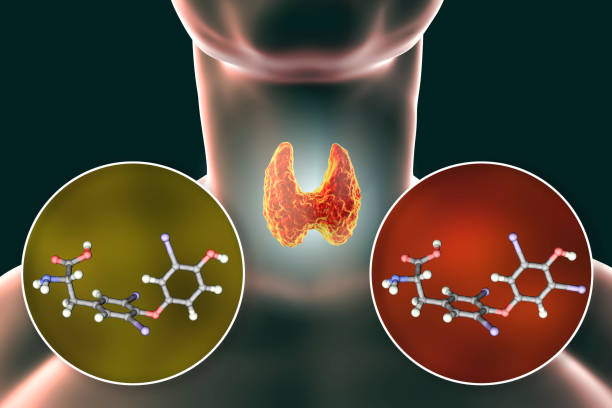What is PCOS?
PCOS, or Polycystic Ovary Syndrome, is a hormonal condition that primarily affects reproductive-age women. Women with PCOS have elevated levels of androgens, or male hormones such as testosterone, which cause hormonal imbalance. This condition is distinguished by the formation of tiny cyst-like sacs called follicles that contain fluid and develop in the ovaries. These fluids are immature eggs that have not developed sufficiently to support ovulation.
Missed menstrual periods and infertility are two of the most common symptoms of PCOS. A high level of the male hormone reduces estrogen and progesterone levels, preventing egg maturation and ovulation and thus preventing a woman from menstruating and conceiving.
What Causes PCOS
There is no known cause of polycystic ovary syndrome. Women with PCOS have higher levels of androgens than the average woman, according to studies on women’s health, but the cause of these excess male hormones is unknown. However, the following factors may play a role in PCOS.
Heredity
Polycystic ovary syndrome can be passed down to biological daughters by women who have the condition. According to research, this hormonal condition runs in families and is passed down through several genes.
Insulin Resistance
Insulin is a hormone produced in the pancreas that supplies sugar and energy to cells. In some cases, the cells do not respond to insulin and thus do not use the sugar, resulting in high blood sugar. As a result, high blood sugar causes the pancreas to produce more insulin, which produces androgens. PCOS and its symptoms are exacerbated by elevated levels of androgens and male hormones.
Inflammation
According to research, polycystic ovaries can be caused by high levels of inflammation. This inflammation could be caused by an excess of androgens or by low-grade inflammation. Low-grade inflammation is the body’s response to injury or infection via white blood cells that last only a short time. When low-grade inflammation lasts longer than usual, it can lead to PCOS.

What Are the Symptoms of PCOS?
Irregular Menstrual Periods
Irregular menstrual cycles are an early sign of polycystic ovary syndrome and can occur during the first menstrual cycle. Women suffering from this condition may have periods and menstruate less than six times per year. They may also have extended periods of several days or weeks. High levels of androgens, or male hormones, inhibit the maturation and release of eggs for ovulation, affecting the menstrual cycle.
Facial hair and excessive hair growth
Androgens, such as testosterone, are responsible for the growth of facial and body hair. Men have more androgens than women, so they have more facial and body hair. Women with polycystic ovary syndrome, on the other hand, have higher levels of these male hormones than the average woman. They may develop facial hair and excessive hair growth, particularly on the chest, back, and arms.
Fertility Issues
PCOS is characterized by cysts and fluid-filled follicles within the ovary. These sacs and follicles contain immature eggs that are unable to grow and develop for ovulation and are thus not released. Fertility does not occur without ovulation, and a woman with polycystic ovary syndrome will have difficulty becoming pregnant. PCOS hormone imbalance reduces the production of female hormones like estrogen and progesterone, which aid in ovulation and pregnancy.
Polycystic Ovaries
PCOS causes an increase in the size of the ovary. This ovary enlargement is caused by the organ’s multiple fluid-filled sacs or follicles. Cysts and follicles form around the ovary’s edges and contain immature eggs that cannot be fertilized. Women with polycystic ovaries may experience pain as well.
Skin Problems
Acne and breakouts are symptoms of hormonal imbalance. Androgens cause excessive oil production in the skin, clogging pores and causing acne and other skin problems. PCOS also causes a decrease in the estrogen hormone, which is responsible for the production of skin sebum. Dry skin and breakouts are caused by low estrogen levels. Many PCOS women experience skin problems such as skin tags, dry skin, and acne.
Weight Gain
Weight gain is a common symptom of polycystic ovarian syndrome. Women with PCOS gain weight because of insulin resistance, a condition in which some cells fail to respond to insulin. Insulin resistance causes rapid weight gain, leading to conditions such as obesity. To combat resistance and regulate blood sugar, the pancreas produces more insulin. Excess insulin causes the body to produce more androgens, which leads to the growth of facial and body hair as well as weight gain.
Depression and mental health issues
Depression and emotional distress are common in PCOS patients. PCOS causes metabolic complications as well as an excess of androgens, which have been linked to mental health issues such as depression and anxiety. These issues range from severe mental illnesses such as major depressive disorder to minor ones such as mood dysfunction. Other PCOS-related issues, such as infertility, can also contribute to depression in women with PCOS.
Sleep Disorders
Insomnia and sleep apnea are two common sleep disorders in women with PCOS. Polycystic ovarian syndrome disrupts sleep patterns, causing women to sleep fewer hours and with lower quality. Sleep apnea occurs when a person repeatedly stops breathing for a short period of time while sleeping and then resumes breathing. This cycle of breathing problems results in poor sleep quality, snoring, and fatigue.
Thinning Hair and Hair loss
In some women, PCOS can cause hair thinning and even hair loss. These symptoms are similar to male baldness and are caused by an excess of androgen in a woman’s system.
High Cholesterol
PCOS causes an increase in triglyceride and cholesterol levels, which can sometimes reach abnormal levels. These elevated cholesterol and triglyceride levels are caused by PCOS’s insulin resistance, fluctuating hormones, and weight gain. High cholesterol levels can lead to hypertension and heart problems.
What are the risks of PCOS?
While polycystic ovary syndrome is not fatal, it can lead to additional complications if not properly treated and managed. The following risks are associated with unmanaged PCOS:
Infertility issues.
Women with PCOS have difficulty getting pregnant because of high androgen levels, which prevent egg maturation and release. If the condition is treated, they can still become pregnant and have children. PCOS left untreated can cause serious fertility issues and infertility.
Health conditions
PCOS can lead to serious health problems such as heart disease and type 2 diabetes as a result of weight gain and insulin resistance. Women with PCOS are more likely to develop conditions such as high blood pressure, diabetes, and obesity. These conditions are caused by PCOS-related insulin resistance and weight gain. If you notice any PCOS symptoms, you should see a doctor right away.
Mental Health Problems
PCOS is associated with mental health issues such as anxiety and mood dysfunction. These issues can worsen and lead to chronic mental illnesses like depression. Women with polycystic ovary syndrome may experience low self-esteem as a result of other PCOS-related issues such as hair thinning and loss, weight gain, and excessive hair growth. Depression can result from these issues.
Pregnancy Issues
Women with PCOS can become pregnant and have children, but they can also have miscarriages and other pregnancy complications such as gestational diabetes and premature birth.
What are the Treatment Options for PCOS?
There is no known cure for PCOS. There are, however, treatments and ways to manage the condition in order to reduce symptoms and the risk of serious health problems. The treatment options for polycystic ovary syndrome are as follows.
Healthy Diet
Healthy foods such as vegetables, fish, nuts, and tomatoes help to reduce inflammation and PCOS symptoms. Inflammation is one of the causes of polycystic ovary syndrome (PCOS), and if it is not treated, it can aggravate the condition. Healthy eating also aids in the reduction of insulin resistance and weight loss, as many women with PCOS gain a lot of weight.
Avoiding smoking
Smoking has been shown to raise androgen levels, which is a key feature of PCOS. This practice may precipitate or worsen polycystic ovary syndrome, resulting in serious complications. As a result, quitting smoking aids in the management of this hormonal condition.
Weight Loss
PCOS causes weight gain and raises cholesterol levels, both of which can lead to hypertension. Women with PCOS can manage their condition by exercising regularly and dieting to lose weight. Losing weight controls blood sugar levels and prevents excess androgen production.
Hormone Therapy
Because PCOS is primarily caused by a hormonal imbalance, hormone therapy is an effective treatment option. Women with PCOS have fluctuating hormone levels, with elevated androgen levels that lower female hormones such as progesterone and estrogen. Hormonal birth control pills can also aid in hormonal imbalance.
Through bio-identical hormone replacement therapy, hormone therapy supplements these essential female hormones. Non-synthetic hormones that are safe and effective at restoring hormonal balance are used in BHRT.
Why Choose Us For PCOS Treatment?
Hormone therapy is one of the most dependable PCOS treatments. However, the majority of synthetic hormones used in this treatment have serious side effects that can jeopardize other hormonal conditions. Look for a PCOS treatment and hormonal therapy clinic that offers bio-identical hormone replacement therapy. Bio-identical hormones are supplements that are effective and safe because they are similar to natural hormones.
Meridan Health and Wellness provides bio-identical hormone replacement therapy to PCOS-diagnosed women and men who are experiencing hormonal imbalances. We are an Atlanta-based clinic that specializes in both men’s and women’s health and provides hormone replacement therapy for older women and people with hormonal issues. We also check your medical history before we diagnose PCOS and conduct blood tests and examinations like a pelvic exam and a physical exam to establish the cause of your illness and check for diseases.
We have highly trained and experienced doctors who have provided hormone replacement therapy and treated conditions such as PCOS for many years. We also treat hormonal imbalances and disorders with a patient-centered approach and collaborate. Contact us today to discuss your hormonal treatments and concerns.



